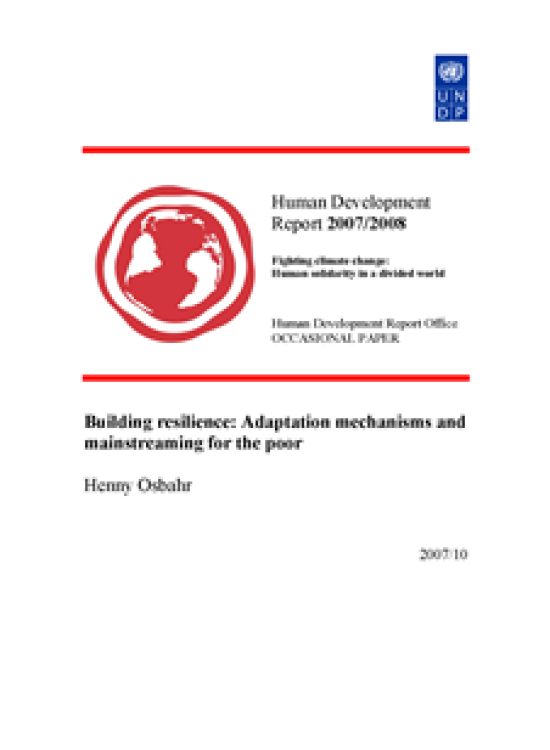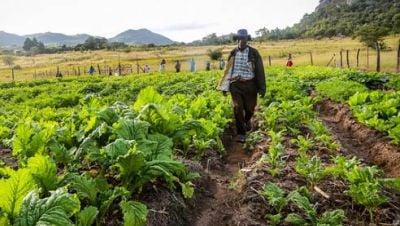Building resilience: Adaptation mechanisms and mainstreaming for the poor

Download Report by Language
Document
osbahrhenny.pdf
(252.91 KB)
Citation
Osbahr, Henny. 2008. Building resilience: Adaptation mechanisms and mainstreaming for the poor. New York.
Building resilience: Adaptation mechanisms and mainstreaming for the poor
Posted on: January 01, 2008
Climate change is happening and the diversity of impacts is likely to most affect the poor in developing countries. Developing countries are particularly vulnerable because they have some of the most climate-sensitive economies and concentrations of urban poor. These societies may have a limited capacity to adapt to change. Subsistence societies are largely dependent on natural resources, which are affected directly by climate variability and change. Interrelated drivers of vulnerability also include a reliance on the informal sector, limited formal safety nets, weak infrastructure and healthcare, frequent disasters, environmental degradation and poverty. Climate change will compound existing vulnerabilities and has implications for poverty eradication and therefore the ability of countries to meet their Millennium Development Goals. Climate change has very real implications for the human dimensions of development. Although livelihoods have constantly adapted to change, the impacts of climate change may push people beyond their capacity to cope and adapt, because of an increasing magnitude, frequency or rate, particularly of weather-related disasters such as drought, storms and floods. Climate-induced changes to resource flows will affect the viability of some livelihoods unless effective measures are taken to protect and diversify them through adaptation. Adaptation must be seen as a process that is itself adaptive and flexible, in order to address locally specific and changing circumstances.

